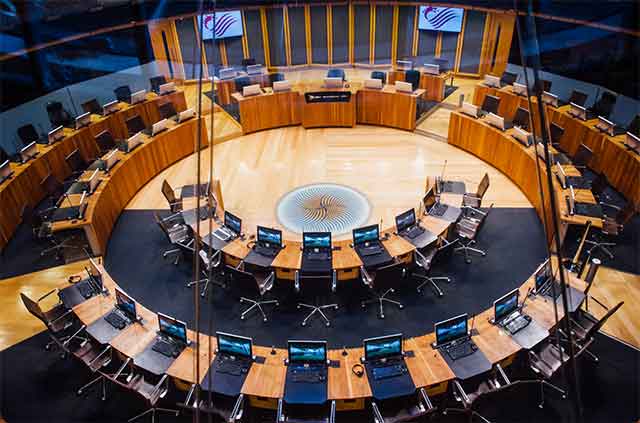Senedd members unanimously passed a “first-of-its-kind” law aimed at ensuring the safety of coal and quarry tips.
Huw Irranca-Davies welcomed cross-party support for the disused tips bill which was introduced in the wake of a major landslide in Tylorstown, Rhondda, in 2020.
The Labour deputy first minister said: “We are keenly conscious of the worry and the anxiety that so many families living in the shadow of disused tips feel, right across Wales.”
The bill updates the “not fit for purpose” Mines and Quarries Act 1969 and establishes the Disused Tips Authority for Wales, charged with ensuring tips do not threaten human welfare.
Vowing never to forget the Aberfan tragedy, Mr Irranca-Davies said “Climate change, with ever-increasing and erratic levels of rainfall, poses increasing challenges for the management of disused tips.
“And for thousands of people in all our communities across Wales… these tips are an ever-present reminder of what can go tragically wrong.”
‘Never again’
The bill includes arrangements for the assessment, registration and monitoring of tips as well as powers for the Disused Tip Authority to enter land and require information.
Mr Irranca-Davies described the bill as progressive and the first of its kind in the UK, saying: “As a nation that was in the vanguard of the coal industry, it’s entirely appropriate that we lead the way with the legislation to ensure the future of disused tips and quarries.”
Janet Finch-Saunders, the Conservatives’ shadow environment secretary, backed the bill during a debate on July 15 before Senedd members voted 50-0 in favour.
She said: “At the heart of this legislation is the memory of those 116 children and 28 adults who were killed when a coal waste tip came crashing down onto a school and surrounding homes on 21 October 1966, and we’ve seen other tip slides since.
“Never again do we want to see such a tragedy in our country.”
But Ms Finch-Saunders raised concerns about the estimated £600m cost of remediation, with 2,500 coal tips and 20,000 non-coal tips in Wales.
‘Desolation’
Delyth Jewell told the Senedd: “Communities were told to make peace with the desolation left as successive governments shied away from tending to the open wounds of the abandoned mines – allowing them to fester so visibly, painful reminders of exploitation.
“This has not just imposed a terrible environmental toll, the unexorcised spectre of the coal mining industry has weighed heavily on the collective consciousness of these communities.”
Plaid Cymru’s shadow climate secretary broadly supported the bill but bemoaned a lack of ambition in regulating the use of coal in the remediation of mines.
Pointing the finger at the UK Government, Ms Jewell said: “I also believe far more pressure needs to be brought to bear on those who contributed to the state of these tips to make them fully and permanently accountable for the cost of restoration.
“Nevertheless, the bill does represent an important milestone in confronting the legacy of coal mining in our nation and it should be acknowledged as such.
“It will finally start to lift a dark shroud that has loomed far too long over our valleys and from the desolation of those scarred landscapes to breathe new life at last.”

